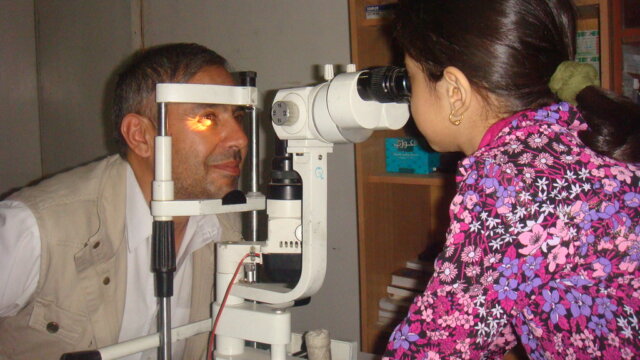FTC disclaimer: This post may contains affiliate links and we will be compensated if you click on a link and make a purchase.
Have we ever analyzed the exact fish oil benefits?
You will be surprised to know that fish oil is one of the key ingredients that affect most of our body’s organs. It is responsible for the proper functioning of our Heart, skin, stomach, and brain.
It regulates our blood pressure and diabetes. It controls depression and coordinates the motor functioning in small kids.
As far as the Heart is concerned, fish oil controls the level of cholesterol and triglycerides, which are the two main factors affecting coronary heart disease.
It eases the flow of blood in our arteries, and hence heart attacks are minimized.
Fish oil benefits also include controlling cancer. Recent breakthroughs have brought to attention that fish oil may also aid in preventing cancer.
Fish oil benefits are so varied that you will be forced to think about how you were managing without it.
Advantages of Fish Oil
Fish oil health benefits are derived from the Omega 3 fatty acids contained in the fish oil. These are considered “essential fatty acids,” critical for human health.
Surprisingly, Omega-3 fatty acids are necessary for body functioning, but your body does not, and cannot, produce Omega-3s.
You have to get them – and their health benefits – through the food you eat (such as cold-water fatty fish like salmon, tuna, halibut, and Hoki) or by taking a fish oil supplement.
Fish oil can be categorized into two types. One is the oil obtained from the tissue of the fish, and the other is the oil extracted from the fish’s liver.
The advantages of fish oil can be enumerated as follows:
- Fish oil is an excellent source of Omega 3 fatty acids, the EPA, and the DHA.
- The body cannot synthesize Omega-3 fatty acids, so they must be supplemented by some dietary inclusions, like fish oil.
- Fish oil contains high levels of Vitamin A, and D. Vitamin A helps in night vision, and Vitamin D helps provide the much-needed calcium for bones and teeth.
To decide if supplementation is right for you, you should know the benefits that you can receive. Here are some science-backed fish oil health benefits.
Science-Based Fish Oil Benefits
Fish Oil Prevents Heart Disease
The fish oil health benefits for your Heart are well-established. That is why both the establishment medical community and alternative health practitioners recommend it for this purpose.
Clinical evidence suggests that the two Omega 3 fatty acids in fish oil, EPA (eicosapentaenoic acid) and DHA (docosahexaenoic acid), help reduce high cholesterol and high blood pressure factors for heart disease.
And they lower triglycerides, which are fats in the blood that are also known to contribute to heart disease.
Fatty acids found in fish oils prevent the accumulation of triglycerides and help lower bad cholesterol and blood pressure, thereby reducing the risk of heart diseases.
Preliminary research has shown that fish oil is also beneficial in preventing atherosclerosis among coronary patients.
Other studies show that fish oil helps prevent and treat atherosclerosis (hardening of the arteries) by slowing the development of artery-clogging plaque.
Fish oil also helps patients who have already had a heart attack. It lowers their chances of suffering another heart attack or a stroke.
Fish Oil Support Anti-Aging
If you follow the field of anti-aging, you know that the length of your telomeres correlates with your longevity. Longer telomeres = longer life.
Telomeres are the protective caps on the end of chromosomes that prevent the chromosomes from being damaged.
However, each time the cell divides, its telomere gets shorter. When the telomere becomes too short of protecting the DNA, the DNA is damaged.
When the DNA is damaged, the cell can no longer divide. It dies.
A study done at the University of California San Francisco and published in the Journal of the American Medical Association (JAMA) in January 2010 demonstrated that heart patients with high Omega 3 contents had longer telomeres than those with lower levels of Omega 3.
In other words, there is evidence that Omega 3s, such as are contained in fish oil supplements, may lead to a longer and healthier life.
Fish Oil helps in Fetal Brain Development.
It is impossible to deny the need for DHA and EPA fats to develop properly in a fetus’ brain.
That’s because, somewhat surprisingly, the brain is largely composed of fat. The fetus’s brain needs polyunsaturated fats, especially the long-chain Omega-3 fatty acids found in fish, EPA, and DHA, to develop properly.
Studies suggest that the DHA and EPA found in the long-chain omega-3 fatty acids are vital for the proper functioning of the prenatal brain. Also, it has a great impact on child neurodevelopment in the later stage of life.
Hence, brainpower and concentration level is increased. Also, it prevents the development of mental illnesses.
Fish Oil for Heart Failure
A study has discovered that daily intake of Omega-3 polyunsaturated fatty acids can reduce heart failure.
Further, observational studies stated that fish oil and fish oil supplements help heart failure.
When the Heart cannot pump blood efficiently around the body, it triggers heart failure.
Moreover, Fish oil supplements effectively treat heart failure better than some other options for treating heart diseases.
According to a study, intake of Omega-3 PUFA has a better effect on heart failure than popular cholesterol-reducing drugs.
Further, Fish oil supplements can also help combat chronic heart failure as researchers have found that fish oil and its supplements are slightly more effective than placebo or drug.
But the benefits of fish oil in heart disease don’t mean that anyone with a problem with heart failure should take fish oil supplements on their own.
The high-risk condition of heart failure needs proper diagnosis and accurate treatment procedure. Taking a specific formulation of fish oil supplement prescribed by a physician is crucial to cure heart failure.
Fish Oil for Blood Pressure
After some studies and evidence from the experiments, it has been found that fish oil can significantly lower high blood pressure levels.
Although the exact effect is yet to be discovered, researchers believe that the anti-inflammatory and anti-coagulant factors found in the Omega-3 are helpful.
Even one published research paper has mentioned that Omega-3 fish oil supplements benefit individuals suffering from high blood pressure.
The Omega-3 fatty acid EPA, which is abundant in fish oil, is responsible for thinning the blood and producing anti-inflammatory eicosanoids.
The thinning effect helps the blood be supplied more efficiently throughout the body.
Clinical trials have found that fish oil has the potential to diminish systolic and diastolic blood pressure, and the healing rate is faster with a higher intake of fish oil.
However, the most interesting finding in this field is fish oil intake can also dramatically reduce hypertension.
Also, taking Omega-3 fish oil does not affect normal blood pressure if taken by a healthy person.
Fish Oil Maintain Your Normal Cholesterol Level
Millions of people worldwide opt for various techniques to maintain normal cholesterol levels. Exercise, diet, and drugs are the widely used methods among them.
However, planned diets are the best natural techniques for retaining normal cholesterol levels.
Many studies claim that fish oil and fish oil supplements are two major factors responsible for reducing triglyceride levels in the blood.
High triglyceride levels can cause a risk of heart disease, especially in women.
According to research taking fish oil and gamma-linolenic acid effectively maintains triglyceride, LDL, and HDL levels.
Fish oil taken with garlic is also useful for reducing total cholesterol, LDL cholesterol, and triglycerides.
A comprehensive study has revealed that the long-chain Omega-3 in fish oil can reduce triglycerides by about 25-30% and low-density cholesterol (LDL) by about 5-10%.
Fish oils are rich in essential Omega 3 fatty acids to reduce cardiovascular disease. Also, people with high triglyceride levels are at higher risk of heart disease.
And as fish oils can reduce cholesterol levels, taking fish oil as a regular diet can help prevent heart diseases.
According to some studies, normal fish oil supplements have little effect on cholesterol levels. But specific fish oil supplements have shown significant results in improvising cholesterol levels in the blood.
However, it is recommended that you consult your physician before taking any fish oil supplement.
Fish Oil for Expectant Mother
Fish oil supplements have emerged as rich sources of Omega-3 fatty acid that has potential benefits for the mother and the fetus.
Researches indicate that fish oil supplements, with a moderately high dose of Omega-3, taken during the last 20 weeks of pregnancy, have a significant effect on the physical as well as mental health of the baby.
The benefits of taking fish oil supplements during pregnancy are discussed below.
- It reduces premature birth risks.
- Regular intake of fish oils supplements increases the blood flow to the uterus, which is essential to developing a healthy pregnancy circumstance.
- Fish oil supplements help boost the newborn baby’s immune power and protect from allergies and other infections.
- Fish oil supplements improve the metabolic development of the baby.
Omega-3 is an effective dietary supplement to be taken during pregnancy as it has a positive impact on both mother and the fetus.
Studies have indicated that enough intake of Omega-3 during the last three months of pregnancy is essential for developing the infant’s brain and eyes.
However, It is always advised to consult a physician about the doses of fish oil supplements for the expectant mother.
Fish Oil for Osteoporosis
A combination of fish oil and calcium has proved to be highly beneficial for women.
It is said that these elements, when taken together, can help to protect women from osteoporosis. It is a disease of bone that leads to an increased risk of fracture and is highly common amongst women.
Moreover, a study of postmenopausal women found that those given a combination of fish oil and calcium had higher bone density and fewer fractures than those given calcium and a placebo.
Fish Oil Necessary For Pregnant Mothers
Research has thrown up many interesting facts about the benefits of fish oil in pregnant women.
Research has indicated that fish oil supplements in pregnant women can lead to better hand-eye coordination and brain development in unborn babies.
Also, blood samples of umbilical cords show a high level of omega-3 fatty acids. This has resulted in good hand-eye coordination in babies.
Further studies have found that taking fish oil during pregnancy can help children’s neurological development.
Studies have also stated that Omega-3 fatty acids present in fish oil are responsible for the healthy development of the eyes and brain of a fetus.
Hence the latest research highlights the significance of fish oils for pregnant women to enhance the unborn child’s overall development.
Fish oil supplements are not only helpful for unborn babies; they are beneficial for mothers. It reduces high blood pressure during pregnancy and also gives relief from post-natal depression.
Clinical trials have indicated that when women with a history of hay fever or asthma take fish oil regularly during pregnancy, their children are less prone to these allergies after birth.
However, pregnant women must take these fish oil supplements in the period when the immune system of the child is under development. Only then will the child develop immunity to these allergies.
Cod liver oil which is considered to be very rich in omega-3 fatty acids can also help prevent allergies in newborn babies.
It is very easy for moms-to-be to get carried away and eat a high dose of fish oil or its supplements. But this is highly dangerous for the unborn child. It will lead to vitamin toxicity in the child.
Therefore, it is advisable to listen to the family doctor or dietician and take only the right amount of fish oil in food.
Fish Oil for Attention-Deficit/Hyperactivity Disorder (ADHD)
According to recent research, a lack of polyunsaturated fatty acids such as Omega-3 and Omega-6 fatty acids can trigger dyslexia and hyperactivity disorder.
Another research reveals that deficiency of omega3 fatty acids may be a factor responsible for learning difficulties. The omega3 fatty acid positively affects children’s emotional health and neurological development.
Children and adults must consume an adequate amount of food that contains omega-3 fatty acids for the proper construction of the brain.
Fish oil, one of the major sources of Omega 3 fatty acids, is an appropriate dietary supplement for the body that can contribute to a healthy brain.
Hence, fish oil can be recommended as an alternative ADHD treatment medicine. More than being a remedy for ADHD, fish oil is a major source of EPA and should be included in the diet.
Studies suggested that Omega 3 supplements may help improvise behavior traits in children.
However, increasing the intake of fish oil or taking fish oil supplements will significantly improve children’s eating habits.
Fish oil is not the only way to ward off ADHD but an alternative ADHD treatment. Little attention to the children’s daily diet can make a world of difference in their minds and physical health.
Parents should be aware of the essential fish oil dosage for their children. If fish oil is not available to consume directly, recommended fish oil supplements can be an alternative source of Omega 3 fatty acids.
Fish Oil for Chronic Fatigue Syndrome
Chronic fatigue syndrome or CFS is when a person feels too tired or is easily exhausted for no apparent reason, even while doing normal life activities.
Sometimes, the profound weakness of CFS doesn’t reduce even after a goodnight’s sleep, and it steals the energy of a person.
The disease can affect people irrespective of gender, age, race, and socioeconomic class.
According to a recent study, people subjected to CFS have high choline and creatine levels in their brains.
Choline controls the fat levels in the brain cells, and creatine is known as the energy provider.
Several types of research have confirmed that fatty acid supplements to the body can control the imbalance of these chemicals in the brain.
Particularly, the EPA abundant in omega-3 fish oil is useful for significant improvement in the person who has chronic fatigue syndrome.
Studies have found the relation between omega-3 fish oil EPA and chronic fatigue syndrome.
Patients with chronic fatigue syndrome are recommended high omega-3 fish oil EPA supplement to resume the chemical balance in the brain and reduce CFS symptoms.
Reports say that most people suffering from CFS have experienced positive results after consuming the Omega-3 fish oil EPA.
Fish Oil for Depression
It has been proved that the medicinal benefits of fish oil have extended to mood disorders and depression.
Studies revealed that fish oil acts as an anti-depressant and helps eliminate schizophrenia and bipolar disorder symptoms.
According to various researches, depressed people are found with lower levels of EPA.
EPA is essential to maintain the brain’s normal function and is an essential component of fish oil.
In research, it was found that a 1 gram fish oil dose regularly produced significant improvement among patients suffering from depression compared to patients who took other medications.
The presence of omega-3 fatty acids in fish oil is an effective component to stabilize mood swings in bipolar disorder. Daily intake of fish oil seems to be one of those few effective treatments for depression.
Fish oil, which is rich in omega-3 fatty acids, works to ease depression by enhancing its effectiveness. The omega-3 is also highly beneficial for patients suffering from depression and at risk of heart disease.
If you have been feeling down or suffering from depression, boost yourself with a daily intake of fish oil.
Fish Oil helps Countering the Bad Effects of PKU.
Loss of ability to break down an amino acid called phenylalanine, also known as PKU.
It is a rare condition that results when both parents pass down this disease through their genes. The baby acquires phenylketonuria or PKU through autosomal recessive traits.
The babies with PKU are deficient in the enzyme phenylalanine hydroxylase, which is vital for breaking down phenylalanine. If not broken down, this enzyme, and two other related substances, are responsible for brain damage.
The symptoms of PKU are quite noticeable. A baby with PKU will have
- Lighter hair, skin, and eyes
- A small head
- Frantic activity
- Seizures
- Mental retardation
- Sudden movements of arms and legs
- Rashes on the skin
- Tremors
- Mousy odor on skin, breath, and urine
A simple blood test is enough to determine if a baby is suffering from PKU. The face-saving factor of this disease is that it is treatable.
The diet can be structured to guard against PKU. The diet must be strictly followed while the child grows and throughout his entire lifetime.
According to research, Fish oil plays a vital role in PKU. It replaces the missing long-chain fatty acids and helps coordinate the child’s motor movements.
Fish oil supplements should be taken regularly to counteract the effects of PKU.
If precautions are not taken immediately, and treatments are not started, mental retardation will occur quite soon.
Women need to test for PKU during pregnancy and take necessary medication and dietary supplements to keep the disease under control.
Fish Oil can Prevent Receding Hairline and Hair Loss.
When it comes to hair loss, everyone is seriously concerned about it and will go to any lengths to prevent it.
The National Institutes of Health report revealed that EPA and DHA, the two components of omega-3 fatty acids, are essential for hair growth.
Studies suggest that the cells better absorb nutrients using omega-3 fatty acids. The cells, thus strengthened, can work better to achieve good hair growth.
This is not just restricted to the hair on the scalp, but it also prevents hair fall from eyebrows and eyelashes.
Hair loss can be caused by genetic conditions, illnesses, or poor nutrition.
Fish oil helps to speed up hair growth. If you use fish oil supplements regularly together with healthy nutrition, you can feel the changes in a very short period.
Therefore, however many supplements you take, you must be careful about your food intake. A balanced diet goes a long way in preventing hair loss.
Hormone therapies and stress too take a toll on the scalp and lead to hair loss. Fish oil is a savior in this direction.
Take good food with fish oil supplements, and you will have a crowning glory to be proud of.
Fish Oil Relief from Inflammatory Disease
Fish oil and omega-3 fatty acids harbor excellent anti-inflammatory qualities.
Inflammation is the cause of many lifestyle diseases and other health issues. Therefore an increase in the amount of omega-3 can help to prevent and treat the symptoms.
Research studies indicate that fish oil supplements help relieve gastritis, cystitis, and many chronic inflammatory diseases. The fish oil pills are a great immune system booster.
Research further indicates that Omega 3 benefits those battling inflammatory diseases and conditions.
Asthma and bronchitis are both conditions affected by chronic inflammation of the respiratory system.
Studies show that by increasing the level of Omega 3 fatty acids in the diet, it’s possible to reduce the number and severity of attacks that some patients experience.
Arthritis is caused by inflammation of the joints and the surrounding tendons and cartilages; a good omega-3 health supplement will help to reduce some of the symptoms.
Likewise, rheumatoid arthritis involves inflammation in the joints that may also be reduced in some patients after taking fish oil supplements.
Again inflammation has a big role to play in causing Crohn’s Disease. However, recent studies have shown a significant reduction in symptoms of Crohn’s Disease by using omega-3 fatty acids.
Around 70% of sufferers have become symptom-free by regularly using a good fish oil supplement.
Fish Oil Helps in Weight Loss and Skin Disorder
Fish oil benefits for those people wanting to lose weight are well documented.
Recent research highlighted the Omega 3 benefits for those patients trying to lose weight.
The Omega 3 fatty acids assist the vital organs in breaking down fat into usable energy more efficiently.
Thus, it increases the body’s effectiveness during physical activity, making weight loss achievable with less measurable effort.
As a huge side effect of improving the overall health of your body, fish oil benefits your skin and hair as well.
Omega 3 benefits your skin’s ability to retain moisture, which is a vital key to reducing the appearance of fine lines and wrinkles.
The research highlighted that fish oil benefits have also been positively linked to healthier hair growth, which should become shinier and less brittle as you increase your Omega 3 intake.
Skin disorders such as Psoriasis are also caused by inflammation.
A meta-analysis has shown the positive impact of fish oil supplements on Psoriasis. Further, it helps reduce symptoms and, over time, completely erases them.
Even for general skin health, omega-3 can be effective, so you will often find it in the ingredients of the top skincare products.
Research reveals that the benefit of fish oil is its ability to fight Eczema. Eczema is a skin condition that causes redness and itching, and flaking.
Fortunately, fish oil has been able to help many people suffering from Eczema by reducing the redness and swelling and alleviating the itching.
Fish Oil Reduces the Risk of Cancer
Cancer is one of the major killers in Western societies.
Moreover, there is now also significant evidence that an adequate intake of the Omega 3 fats in the diet can help prevent some cancers or also help reduce their progression.
Significant scientific research is still being conducted in these areas, but the results are encouraging.
Studies have shown positive results against breast cancer, ovarian cancer, colon cancer, prostate cancer, etc.
The essential fatty acids found in fish oil stop the mutation of healthy cells into cancerous cells and kill the existing cancerous cells.
Fish Oil Dosage from Foods and Supplements
The fatty acids are categorized as non-essential fatty acids and essential fatty acids.
Non-essential fatty acids can be synthesized through various biochemical processes or by converting essential amino acids. Also, non-essential fatty acids intake through diet is not necessary.
Essential fatty acids should be supplemented through diet.
A class of essential fatty acids is the omega-3-fatty acids found in loaded quantities in fish oil.
Since the amount of omega-3 fatty acids is not measurable, an insight into how much fish oil has to be consumed to meet the daily requirements is not standardized.
Moreover, you can get ample quantities of omega-3 fatty acids by taking fish a minimum of twice a week in your diet or taking fish oil pills.
Though the recommended dosage by the physician is the most reliable for an average human being.
Further, the FDA (U.S. Food and Drug Administration) has not established the daily value (DV) of Fish oil or Omega-3 fatty acids.
A typical fish oil supplement provides 1000 mg of fish oil containing 120 mg DHA and 180 mg EPA, but the doses may vary depending on age and health condition.
Fish Oil for Women During Pregnancy
As per research studies, the recommended dosage of omega-3 fatty acids for women during pregnancy is two fish servings per week. It will give Omega-3 fatty acids from 100 mg to 250 mg and 50 to 100 mg DHA.
Further, fish oil requirements for women during pregnancy may vary from 400 to 550 mg of Omega-3 fatty acid containing 225 mg of DHA. This requirement can be fulfilled by taking 1 or 2 fish oil capsules per day.
Fish Oil for Heart Disease
The American Heart Association recommends two servings of fish per week with no history of coronary heart disease and a single serving of fish per day for coronary heart disease patients.
Further, it recommends one g/day omega-3 fatty acids dosage, and it may increase to 2 to 4g/day Omega-3 fatty acids dosage to reduce the elevated triglyceride level.
Be Careful While Purchasing the Fish Oil
Fish oil is the best source of omega-3 fatty acids like DHA and EPA. But people are also trying to find alternative means of providing these fatty acids.
Many other plant extracts are hoping to replace fish oil, but none of them are as good as fish oil. They either lack EPA and DHA or do not have sufficient quantities.
But fish oil has abundant quantities of these fatty acids naturally produced.
But looking at the number of options available for fish oil, we have to determine the best fish oil to be consumed. The best fish oil will fulfill certain criteria to be awarded the top position.
- The species of fish used must be clearly mentioned on the bottle. Tuna, salmon, and sardines are popular choices.
- The best fish oil must also mention that it contains omega-3 fatty acids, EPA and DHA. There is no use in consuming just “fish oil.”
- The amount of fatty acids in the best fish oil should also be written on the bottle. It is important to take the correct dose.
- Find out from which part of the fish the oil is extracted. The fish oil should normally be extracted from the flesh and not the head or tail.
- You should ensure that you are buying from a legitimate source that can be trusted to give you quality products. The fish used should not be diseased.
- The best fish oil must be free from toxins, pesticides, and heavy metals.
- Make sure that the fish oil is molecularly distilled.
If you are observant enough and buy the best fish oil, you will have a healthy body.
What Are The Negative Side Effects Of Fish Oil Capsules?
After all the positive discussions about the fish oils and fish oil supplements, you might be thinking that fish oil capsules are free from any side effects. But the fact is these supplements are associated with their own shares of negative effects.
One commonly reported negative side effect of fish oil capsules is diarrhea. These are caused by the gelatin and other trace compounds of the fish oils used in the capsules. Many people have allergies to these ingredients of fish oil capsules.
Individuals with gall bladder or other bile problems may face some issues with fish oil.
Again, fish oil can increase the incidence of reflux in people with GERD.
Fish oil capsules can cause problems with blood clotting and uncontrolled bleeding for those on blood thinners.
The mercury levels of the fish oil can often be toxic; it depends on the fish’s quality, sources, and processing.
If an individual takes the fish oil capsules for the first time, the chances are high of having a fishy aftertaste or fishy smell.
Sometimes, the user may experience;
- Burping
- Indigestion
- Bloating
- Abdominal pain.
High doses of fish oil supplements may result in;
- Nosebleeds
- Blood in urine
- Easy bruising
- Weight gain.
To avoid these negative side effects of fish oil capsules, you need to take some careful steps:
- Choose the company’s capsules that comply with Good Manufacturing Practice (GMP).
- The capsules should contain high potency of DHA.
- Choose the manufacturing company that prepares capsules that are processed with molecular distillation.
Conclusion
When you consider all of the other possible benefits, taking a pure fish oil supplement becomes a no-brainer, especially since there usually are no harmful side effects.
Of course, you should consult with your physician to ensure a fish oil supplement is right for you.








